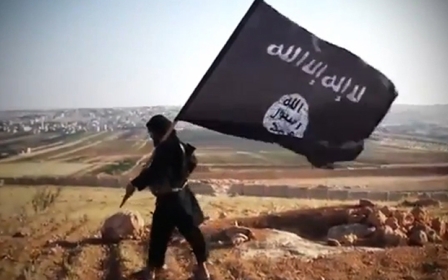Shell scraps $4.6bn Qatar project as oil prices keep tumbling

Shell and Qatar petroleum on Wednesday announced the cancellation of a joint $4.6bn petrochemical project in the Gulf country, after a global fall in oil prices made the venture “unfeasible”.
The companies announced that the al-Karaana project, which was to be built in the Ras Laffan Industrial city and see the Qatari firm owning 80 percent and Shell the remaining 20 percent, was to be called off stating that after “a careful and thorough evaluation of commercial quotations from EPC (engineering, procurement and construction) bidders, which showed high capital costs rendering it commercially unfeasible, particularly in the current economic climate prevailing in the energy industry".
The announcement caused a 3.32 percent fall in the price of Shell shares.
"The fall in oil prices is clearly playing its part," said Keith Bowman, an analyst at UK-based stockbroker Hargreaves Lansdown.
"The estimated return on their investment for both companies will have fallen," he told AFP.
The move follows the scrapping of a similar project by the petrochemical and steel producer Industries Qatar in September 2014.
“The region is beginning to reduce its capital expenditure for petrochemical and hydrocarbon expansion, and that is expected given that oil prices have plunged,” Riyadh-based John Sfakianakis, Middle East director at Ashmore Group Plc, told Bloomberg.
“Qatar is right to take a view of how the supply side will look over the medium term,” he said. “Some of these projects will be reconsidered when oil prices rise and there is more excitement about the sector.”
The Organization of the Petroleum Exporting Countries or OPEC, an organisation comprising the world's leading oil producers, has been widely linked to the fall in prices which, despite a small rally on Wednesday, saw West Texas Intermediate crude at $48.48 a barrel and Brent Crude at $48.27. This is down from around $110 a barrel in July.
Opec Divided?
Despite the shift, however, OPEC in November ruled that it would not reduce production, and therefore try and push prices back up with key players Saudi Arabia and the UAE in particular vowing to stay the course, regardless of the knock-on effects.
But poorer OPEC members have started to feel the pinch and Venezuela on Tuesday insisted that the body was divided on how to respond to plunging crude oil prices.
At a meeting of the cartel in November, Venezuela unsuccessfully lobbied fellow members to tighten the taps to stem the fall in oil prices.
Venezuelan President Nicolas Maduro is currently on a tour of OPEC countries and has been reportedly pushed for greater cooperation to shore up the price of oil.
But speaking in Algeria Tuesday before meeting Prime Minister Abdelmalek Sellal, Maduro said: "There will be no OPEC meeting in the coming weeks due to the lack of consensus."
The next OPEC meeting is scheduled to be held in June.
Maduro was also due to hold talks with Algerian President Abdelaziz Bouteflika, whose country is also a member of OPEC.
The Venezuelan leader said the discussions would focus on "the importance of ensuring the stability of oil prices".
He said oil prices should not be used as an "economic and geopolitical weapon".
Writing in the Guardian, Francisco Monaldi, visiting professor at Harvard University, warned that Venezuela was likely to suffer the worst from a crash in oil prices.
"As the proverbial grasshopper of the fable, Venezuela did not only spend throughout the summer, mostly in consumption, but it also went into a debt binge to afford even more consumption: the country was running deficits of 15 percent-20 percent of GDP during the peak boom years," he wrote.
"Now comes the winter and it faces economic collapse. Inflation could top 100 percent in 2015, shortages are widespread, and there is a high probability that many Venezuelans who came out of poverty during the boom will fall back into it, with serious consequences for political stability."
Stay informed with MEE's newsletters
Sign up to get the latest alerts, insights and analysis, starting with Turkey Unpacked
Middle East Eye delivers independent and unrivalled coverage and analysis of the Middle East, North Africa and beyond. To learn more about republishing this content and the associated fees, please fill out this form. More about MEE can be found here.




